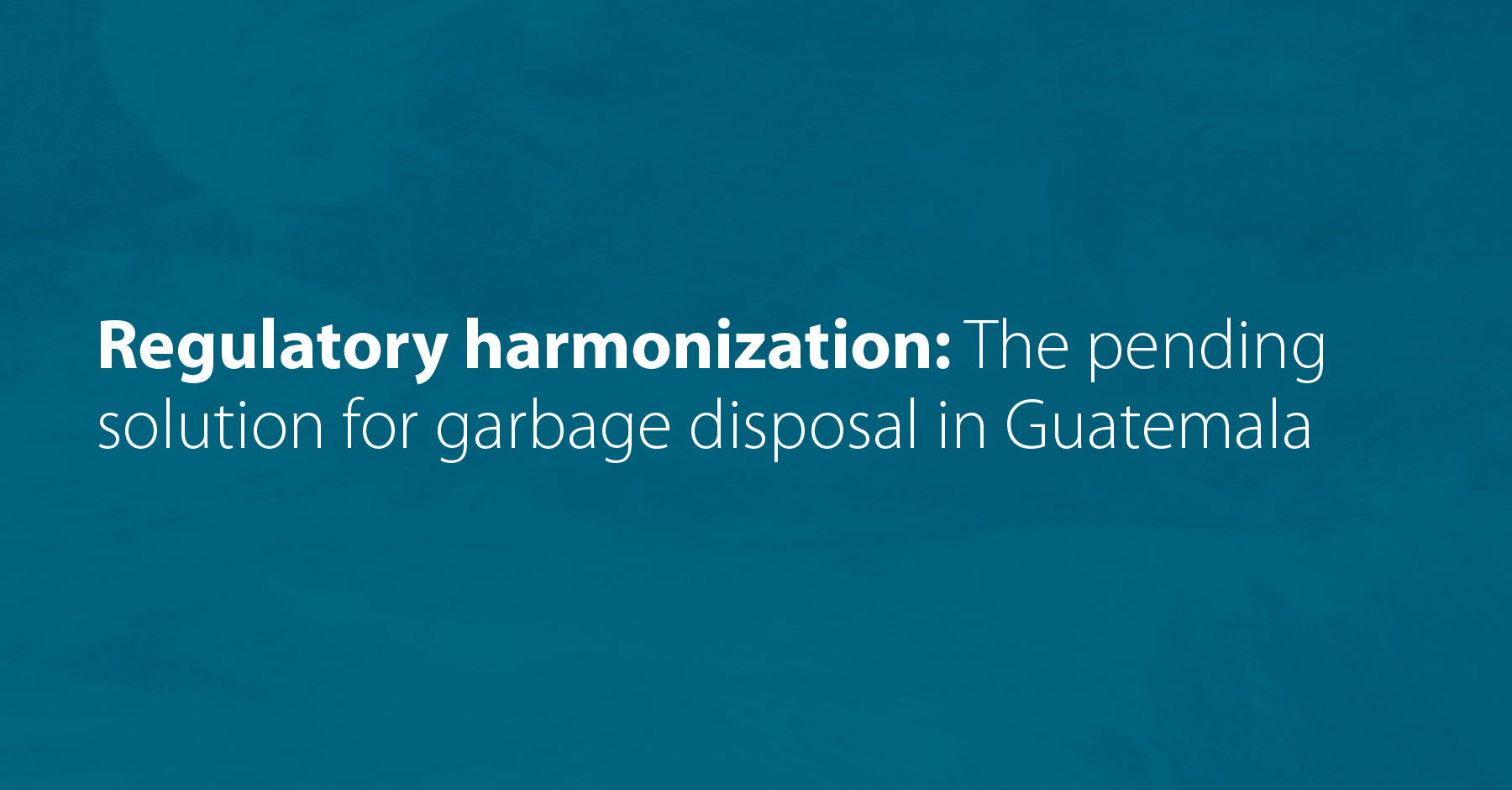In Guatemala, the complexity of waste management is not only restricted to logistical aspects or citizen awareness; the root of the challenge lies primarily in the country’s legal infrastructure.
The absence of unified regulations for waste treatment and disposal has resulted in a mosaic of practices that, instead of solving the problem, aggravate it. This situation results from the lack of a clear and consistent regulatory framework to guide and coordinate the various municipalities in the country.
In addition, the onus on citizens to contract collection services worsens the situation; many disposes of their waste in undesignated areas, increasing pollution and environmental impact. This combination of factors, where legal deficiencies, limited options, and poorly informed individual decisions coincide, has created a breeding ground for the current crisis.
Municipal chaos
Decentralized waste management in Guatemala, granting autonomy to each municipality, was initially proposed as a strategy to enable solutions tailored to local realities. However, this ideal has not materialized uniformly throughout the country. While decentralization is supposed to recognize and address the individual needs of each region, in practice, it has exacerbated differences in waste management, creating a wide gap between municipalities with resources and expertise and those facing limitations in both aspects.
Through a combination of resources, political will, and citizen participation, some municipalities have developed waste management systems that comply with basic regulations while seeking sustainability and reduced environmental impact. However, there are others that, due to a lack of technical or financial capacity or simply a long-term vision, cannot address the problem effectively.
The phenomenon of transferring waste from one municipality with limited capacities to another that may have a slightly better but equally inadequate infrastructure is a palpable example of local shortcomings. This practice not only highlights the lack of adequate facilities in many areas but also shows a reactionary rather than preventive approach to waste management. Transporting waste from one place to another without a clear strategy often results in multiplying problems, with refuse ending up in undesignated areas or overloading existing facilities.
While it is true that some municipalities have made progress in creating regulations for proper waste management, the lack of efficient supervision and control mechanisms undermines these efforts. Regulating without provision for adequate monitoring and strong sanctions for those who do not respect it ends up being little more than a recommendation. The sanctioning body must strengthen monitoring procedures and apply the governing directives uniformly and fairly.
Finally, harmful practices, such as depositing garbage in unauthorized places or dumping directly into water sources, expose a lack of awareness or education and also display a system that has not offered clear, accessible, and efficient solutions for all. Illegal garbage dumps and the contamination of natural spaces have become visible symptoms of a deeper structural problem. These practices, which harm not only the environment but also the health and well-being of citizens, reflect the urgent need to reconsider and reformulate the current approach to waste management in Guatemala.
The lost value: making the most of garbage
Garbage, often seen as a problem to eliminate, can be reinterpreted as a valuable opportunity waiting to be seized. Its correct management not only avoids damage to the environment but also opens the door to economic and environmental opportunities. The traditional view of waste as worthless has led to neglect and improper disposal. However, changing this perception and seeing waste as a resource opens up infinite possibilities for reuse, recycling, and transformation.
Standardizing waste management is the first step in this process. Doing so lays the foundation for identifying, classifying, and processing different types of waste. Standardization, in turn, makes it possible to single out recyclable residues, those reusables and those suitable for more advanced processes, such as energy generation. If the different categories are handled irregularly or mixed without criteria, these opportunities are lost, and what could have been a source of income becomes an environmental threat.
The Swedish experience is a shining example of the achievable when waste becomes a resource instead of a problem. Thanks to a progressive vision and the implementation of sound public policies, Sweden has transformed its waste into energy. Advanced incineration, a technique that burns trash under controlled conditions, generates electricity and heat. This process contributes to reducing garbage accumulation in landfills but also represents an alternative energy source, reducing dependence on non-renewable sources. The Swedish success lies in combining technology, political will, and effective legislation. Legislation that not only sets clear rules but also ensures that enforcing them guarantees that all actors, from businesses to citizens, collaborate in this joint effort.
The example of Sweden illustrates what is possible when vision, will and action are combined, demonstrating how proper waste management can become a win-win solution, benefiting both the environment and the economy. The Guatemalan opportunity is to learn from these experiences and adapt them to its own context, transforming its garbage problem into an opportunity for a sustainable future.
And now, the next move?
Waste management in Guatemala faces multifaceted challenges ranging from a lack of legal infrastructure to logistical problems and considerable variability in municipal capacities. Despite regional differences, the solution is clear: garbage, far from being mere waste, represents an untapped opportunity for energy generation, job creation, and the advancement of a circular economy. The experiences of countries that have transformed their approach to trash, such as Sweden, illuminate a path toward the possibility of reconceptualizing how nations deal with their waste.
For Guatemala to achieve a similar transformation, it must reconsider the current legal and operational waste management structure. This analysis involves creating a unified regulatory framework, strengthening oversight and control, and encouraging responsible disposal and recycling practices at the individual and municipal levels. Establishing robust and sustainable waste management systems will ensure a cleaner and healthier environment and drive a greener and more sustainable economy, where every type of waste goes from being a problem to becoming a vital part of the solution.
Rodolfo Salazar
Partner
Guatemala
E-mail




